Decoding the Standard Nissan Warranty: What "Bumper-to-Bumper" and "Powertrain" Really Cover
The Foundation: Understanding Your Nissan Warranty
When you drive a brand-new Nissan off the lot, it comes with a set of warranties designed to protect you from manufacturing defects. These are factory warranties, provided by Nissan, and they cover different parts of your vehicle for varying lengths of time or mileage. It's crucial to distinguish these from extended warranties or service contracts, which are optional and purchased separately. Our focus today is purely on the standard, included protection that every new Nissan owner receives. Understanding these foundational elements is the first step to becoming a well-informed Nissan owner.
The "Bumper-to-Bumper" Illusion: Nissan's Basic Limited Warranty Explained
The term 'bumper-to-bumper' often conjures images of everything on your car being covered, from one end to the other, no questions asked. While Nissan's Basic Limited Warranty is indeed the most comprehensive part of its standard offering, it's not quite as all-encompassing as the nickname suggests. Nissan officially refers to this as the 'Basic Limited Warranty', and it's designed to cover the repair or replacement of any part on your Nissan vehicle that is defective in materials or workmanship.
For most new Nissan vehicles, this warranty typically lasts for 3 years or 36,000 miles, whichever comes first. This means if a component like your infotainment system, air conditioning, power windows, or even a headlight assembly fails due to a manufacturing defect within this period, Nissan will cover the repair. This broad coverage is fantastic for addressing unexpected issues that arise early in your vehicle's life. However, it's essential to remember that 'defective in materials or workmanship' is key. It doesn't cover routine maintenance, wear and tear, or damage caused by accidents or neglect. We'll dive deeper into specific exclusions later, but for now, think of this as your primary shield against factory-related glitches for the first few years.
Powering Your Peace of Mind: Nissan's Powertrain Limited Warranty
While the Basic Limited Warranty provides broad coverage for the initial years, the Powertrain Limited Warranty steps in to protect the very heart of your Nissan for a longer duration. This warranty is specifically designed to cover the critical components that make your vehicle move. For new Nissan vehicles, the Powertrain Limited Warranty is typically valid for 5 years or 60,000 miles, whichever comes first.
So, what exactly does 'powertrain' encompass? It covers the major components of your engine, transmission (including CVT), and transaxle/drivetrain. Let's break that down:
- Engine: Internal lubricated parts, cylinder block, cylinder heads, oil pan, oil pump, intake and exhaust manifolds, timing chain and gears, water pump, and fuel pump. Essentially, the core mechanical parts that generate power.
- Transmission/Transaxle: The case and all internal parts, torque converter, drive shafts, and universal joints. This includes Nissan's Continuously Variable Transmissions (CVTs), which are common in many of their models.
- Drivetrain: This covers the components that transfer power from the transmission to the wheels, including the drive axle (front and rear), wheel bearings, and seals.
This extended coverage for such vital and often expensive components offers significant peace of mind. It ensures that should a major mechanical failure occur due to a defect, you're protected. Like the Basic Warranty, this does not cover wear items, routine maintenance, or external factors that cause damage.
Beyond the Basics: Other Standard Nissan Warranties You Should Know
While the Basic and Powertrain warranties are the headliners, Nissan also includes several other standard warranties to protect various aspects of your vehicle. These often have different durations and specific coverage details:
- Corrosion Limited Warranty: This warranty covers any body panel found to have rust perforation (a hole completely through the metal) due to corrosion. This typically lasts for 5 years or unlimited mileage. Surface rust or corrosion caused by external factors like stone chips or chemicals is usually not covered.
- Emission Control System Limited Warranty: Mandated by federal law, this warranty covers specific components related to your vehicle's emission control system. The duration can vary, but generally, major components are covered for 8 years or 80,000 miles.
- Seat Belt Limited Warranty: Nissan typically provides a separate warranty for seat belts, covering any defect in materials or workmanship for the entire life of the vehicle, provided the vehicle is operated under normal use.
- Genuine Nissan Accessories and Replacement Parts Limited Warranty: If you purchase and install genuine Nissan accessories or replacement parts at an authorized Nissan dealership, these items usually come with their own limited warranty, often for 12 months or 12,000 miles, or for the remainder of the new vehicle limited warranty, whichever is greater.
Each of these additional warranties provides specialized protection, further enhancing your overall ownership experience and safeguarding specific components of your Nissan.
What's NOT Covered: Common Exclusions Across the Board
Understanding what your Nissan warranty covers is only half the battle; knowing what it doesn't cover is equally, if not more, important. While these warranties are robust, they are not an insurance policy for every eventuality. Here are the most common exclusions you'll find across all standard Nissan warranties:
- Normal Wear and Tear Items: This is a big one. Items that are expected to wear out over time and use are generally not covered. This includes tires, brake pads, brake rotors, clutch linings, wiper blades, spark plugs, filters (oil, air, fuel), and bulbs. These are considered maintenance items.
- Routine Maintenance: Your warranty does not cover the cost of regular service, such as oil changes, tire rotations, fluid checks and replacements, or tune-ups. Following your Nissan's recommended maintenance schedule is crucial not only for your vehicle's longevity but also to keep your warranty valid.
- Damage from Accidents or Misuse: Any damage resulting from collisions, theft, vandalism, fire, natural disasters (hail, floods, earthquakes), or improper use (racing, overloading) is not covered. This is where your auto insurance policy comes into play.
- Damage from Lack of Maintenance or Neglect: Failing to perform required maintenance, using incorrect fluids, or operating your vehicle with known issues can void your warranty for related components.
- Aftermarket Parts or Modifications: If you install non-Nissan-approved aftermarket parts or modify your vehicle in a way that causes a component to fail, that failure will not be covered under warranty.
- Environmental Factors: Damage caused by road salt, tree sap, bird droppings, acid rain, or other environmental factors is typically excluded.
Always consult your Nissan Owner's Manual and Warranty Information Booklet for a complete and precise list of exclusions. Being aware of these limitations helps you manage expectations and ensures you properly care for your vehicle.
Making the Most of Your Nissan Warranty
Now that you're well-versed in the ins and outs of your Nissan warranty, here are a few practical tips to ensure you make the most of it and protect your investment:
- Read Your Owner's Manual and Warranty Booklet: Seriously, do it! These documents contain the most accurate and complete information specific to your vehicle model and year. They'll detail exact terms, conditions, and exclusions.
- Follow the Recommended Maintenance Schedule: This is paramount. Keeping up with regular servicing at an authorized Nissan dealership or a reputable independent shop not only keeps your car running optimally but also provides a documented service history, which is vital if you ever need to file a warranty claim. Keep all your service records!
- Address Issues Promptly: If you notice a potential problem, don't delay. Take your Nissan to an authorized dealership for diagnosis and repair. Ignoring an issue could lead to further damage that may not be covered.
- Use Genuine Nissan Parts: When replacing parts, especially during repairs outside of warranty, opting for genuine Nissan parts can offer better compatibility and often come with their own limited warranty.
- Understand Transferability: Nissan's standard factory warranties are typically transferable to subsequent owners, which can be a significant selling point if you decide to sell your vehicle before the warranty expires. Make sure you understand the process.
By being proactive and informed, you can ensure that your Nissan warranty provides the protection it's designed for throughout your ownership.
Conclusion
Understanding your Nissan's standard factory warranty, particularly the nuances of 'bumper-to-bumper' (Basic Limited Warranty) and 'powertrain' coverage, is a powerful tool for any car owner. It provides peace of mind, helps you anticipate potential costs, and ensures you know your rights and responsibilities. While no warranty covers everything, Nissan's robust protection plan is designed to safeguard you against manufacturing defects for years to come. By staying informed, adhering to maintenance schedules, and addressing issues promptly, you can ensure your Nissan remains a reliable and enjoyable vehicle, protected by the comprehensive coverage it deserves. Drive safely and confidently!Where can I find my VIN?


